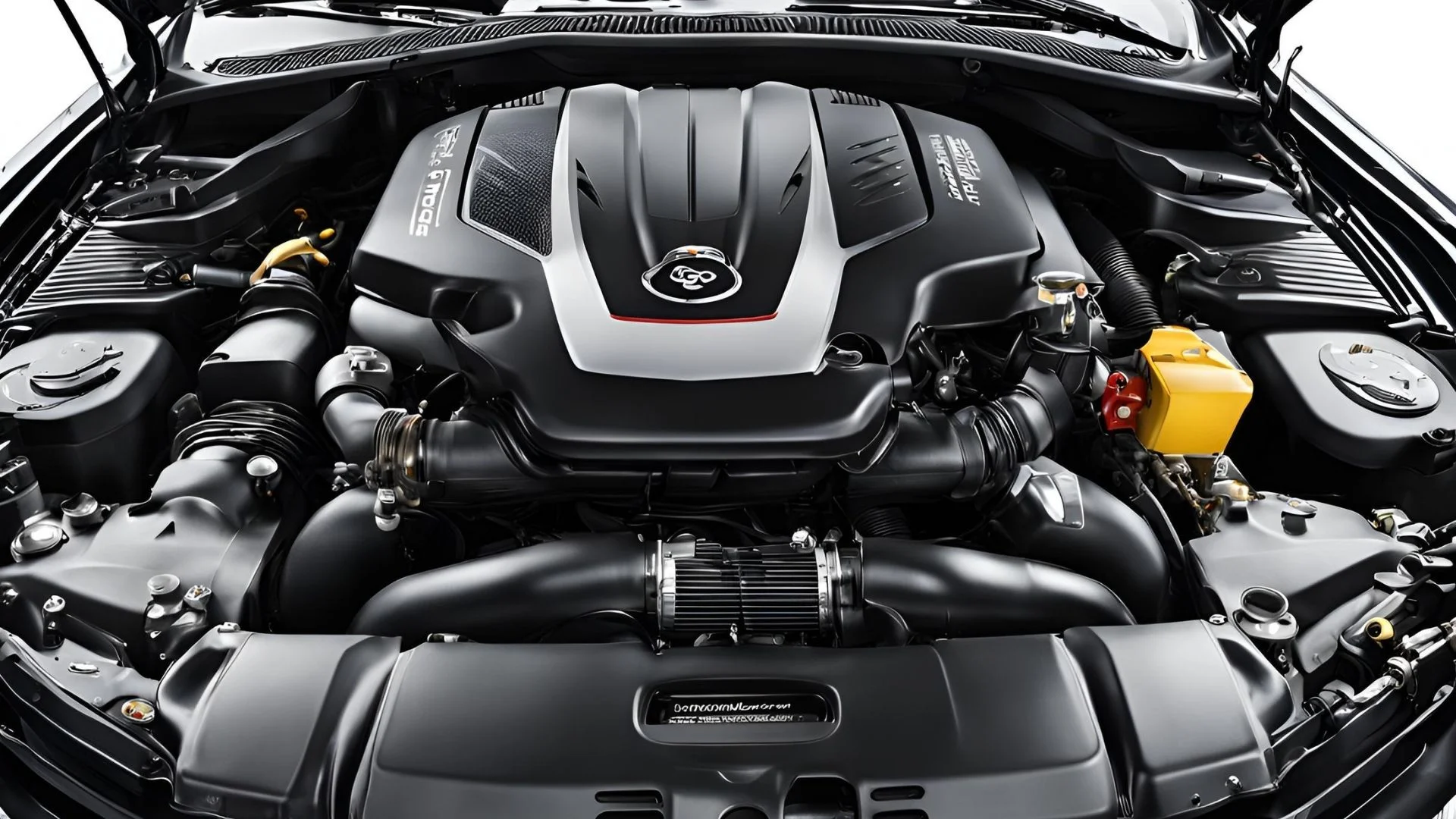Table of Contents
- Is Your Car Really Fuel Efficient?
- Why Does Fuel Efficiency Matter?
- What Factors Affect Your Car’s Fuel Efficiency?
- The Impact of Speed on Fuel Consumption
- How Can You Calculate Your Car’s Fuel Performance?
- How Weather Conditions Affect Fuel Efficiency
- Is 20 MPG Good?
- The Role of Car Maintenance in Fuel Economy
- Why You Need the Car Fuel Performance Calculator
Estimated reading time: 5 minutes. Last updated: February 1, 2025.
Is Your Car Really Fuel Efficient?
With fuel prices constantly fluctuating, managing your car’s fuel consumption has never been more important. Fuel efficiency affects not only your expenses but also your vehicle’s performance and environmental impact.

🔍 Do you know your car’s actual fuel consumption?
Manufacturers provide ideal fuel efficiency ratings, but real-world conditions—such as traffic, weather, driving habits, and vehicle maintenance—can significantly alter your car’s actual fuel usage.
💰 Can you save money by improving fuel efficiency?
Absolutely! Knowing your real fuel consumption allows you to adopt better driving habits and reduce unnecessary fuel expenses.
That’s why the Car Fuel Performance Calculator is an essential tool—it helps you determine your car’s real fuel consumption and compare it to the manufacturer’s stated efficiency. This way, you can optimize fuel use, cut costs, and drive smarter.
What Factors Affect Your Car’s Fuel Efficiency?
Your car’s fuel efficiency isn’t static. It changes based on several key factors:
- Driving Speed: Higher speeds increase air resistance and fuel consumption.
- Traffic Conditions: Stop-and-go traffic burns more fuel than highway driving.
- Tire Pressure: Underinflated tires create more rolling resistance, reducing efficiency.
- Engine Maintenance: A poorly maintained engine consumes more fuel.
- Weather Conditions: Cold weather and strong winds can lower fuel efficiency.
💡 Did you know? Driving at 80 mph instead of 60 mph can increase fuel consumption by up to 20% due to increased aerodynamic drag.
👉 Use the Car Fuel Performance Calculator now to see if your fuel efficiency is on track!
The Impact of Speed on Fuel Consumption
Speed has a direct impact on fuel consumption. Many drivers assume that faster driving gets them to their destination more efficiently, but in reality, higher speeds drastically reduce fuel economy due to aerodynamic resistance.
💡 Did you know?
- Driving at 80 mph instead of 60 mph can increase fuel consumption by up to 20%.
- Most vehicles achieve peak fuel efficiency between 45–65 mph.
- Aggressive acceleration and sudden braking can reduce fuel economy by up to 30% in city driving and 25% on highways.
How to improve fuel efficiency with better speed management?
- Use cruise control on highways to maintain a steady speed.
- Stick to the speed limit—not just for safety, but also for better mileage.
- Avoid unnecessary speed fluctuations, as they force the engine to burn extra fuel.
How Can You Calculate Your Car’s Fuel Performance?
To measure your fuel performance accurately, you need three key inputs:
- Manufacturer’s rated fuel efficiency (MPG or L/100km)
- Total distance traveled (miles or kilometers)
- Actual fuel consumption (gallons or liters)
The Car Fuel Performance Calculator then determines your real-world fuel efficiency and compares it with the expected rating. If there’s a major difference, it might be time to adjust your driving habits or service your vehicle.
💡 Example Calculation:
- Your car’s stated fuel efficiency: 30 MPG
- You drove 200 miles and used 8 gallons of gas
- Your actual efficiency: 200 miles ÷ 8 gallons = 25 MPG
👉 This means your car is consuming more fuel than expected! Time to investigate why.
How Weather Conditions Affect Fuel Efficiency
Weather plays a bigger role in fuel efficiency than most drivers realize. Extreme temperatures, wind resistance, and road conditions can all impact how much fuel your car consumes.
🌡 Cold Weather Effects:
- Cold air increases air density, making your car work harder.
- Engine oil thickens in low temperatures, causing higher internal resistance.
- Using the heater and defroster can increase fuel usage.
💨 Wind and Rain Effects:
- Headwinds make your engine work harder, reducing MPG.
- Heavy rain or snow increases tire resistance, requiring more fuel to maintain speed.
How to minimize weather-related fuel loss?
- Warm up your engine efficiently by driving gently instead of idling.
- Keep tires properly inflated, as cold air reduces pressure.
- Avoid aggressive acceleration in bad weather to prevent unnecessary fuel burn.
Is 20 MPG Good?
Fuel efficiency depends on your vehicle type:
- Compact Cars: 30+ MPG (7 L/100km or better) = Great
- Sedans/SUVs: 20–30 MPG (7–12 L/100km) = Average
- Trucks/Sports Cars: Below 20 MPG (>12 L/100km) = Poor
If your car gets 20 MPG (11.7 L/100km), it’s below average for most vehicles. However, for larger SUVs, trucks, or performance cars, this could be normal.
💡 Want to check if your car’s efficiency is optimal? Use the Car Fuel Performance Calculator!

The Role of Car Maintenance in Fuel Economy
Regular car maintenance is one of the easiest ways to improve fuel efficiency. A well-maintained engine burns fuel more efficiently, while neglected maintenance can increase fuel consumption by up to 20%.
🔧 Key maintenance tips for better fuel economy:
- Check your air filter – A dirty air filter reduces engine efficiency, forcing it to burn more fuel.
- Keep your fuel injectors clean – Clogged injectors affect fuel spray patterns, lowering mileage.
- Regular oil changes – Using the right engine oil can improve efficiency by 1-2%.
- Check wheel alignment – Misaligned wheels create extra drag, increasing fuel use.
🚗 Pro Tip: If you notice a sudden drop in MPG, it might be time for a full car inspection!
Why You Need the Car Fuel Performance Calculator
⛽ Gas is expensive. Don’t let inefficient driving drain your wallet. Use the Car Fuel Performance Calculator now and start saving!
Want to track fuel consumption for specific fuel types? Check out these tools:
- Gasoline Car Fuel Consumption Calculator – Optimize your gasoline usage.
- Diesel Sedan Fuel Consumption Calculator – Track diesel consumption for sedans.
- Diesel Hatchback Fuel Consumption Calculator – Improve fuel efficiency for hatchbacks.
🚗 Take control of your fuel expenses today!
- U.S. Department of Energy - "Fuel Economy."
- CAR and DRIVER - "Fuel Efficiency: Everything You Need to Know."